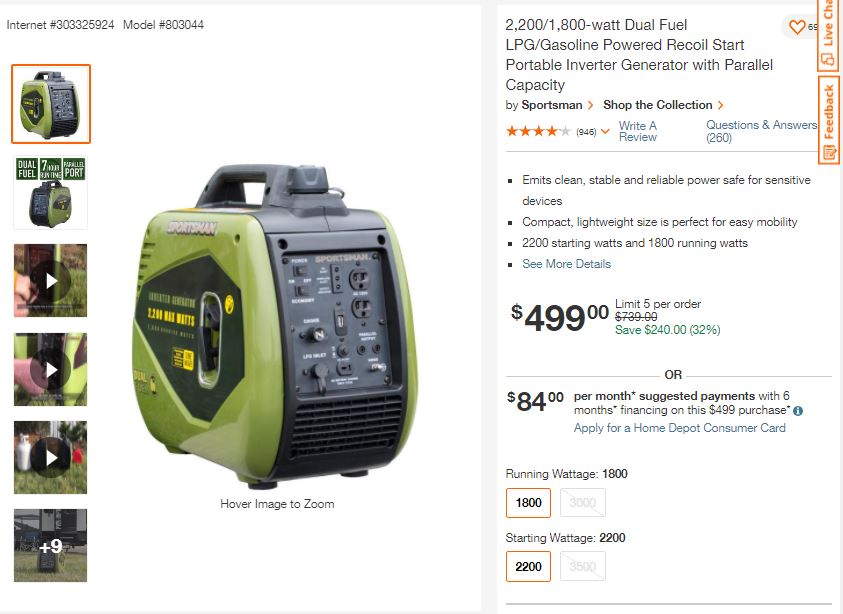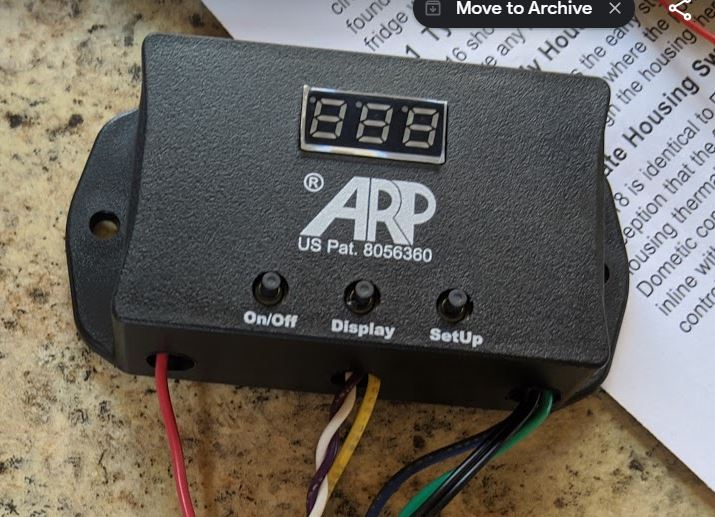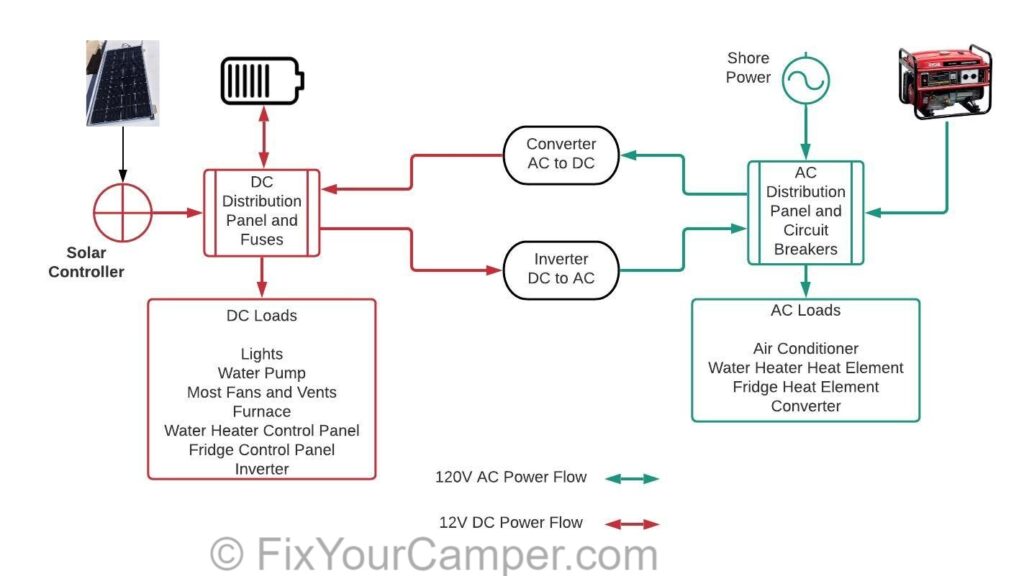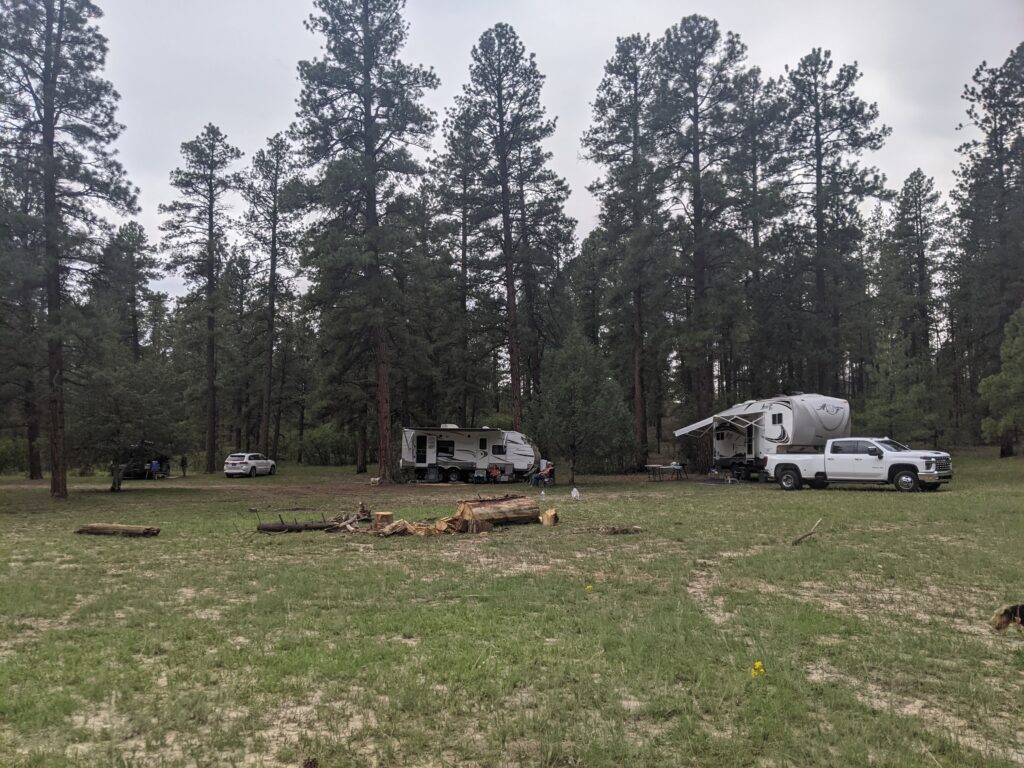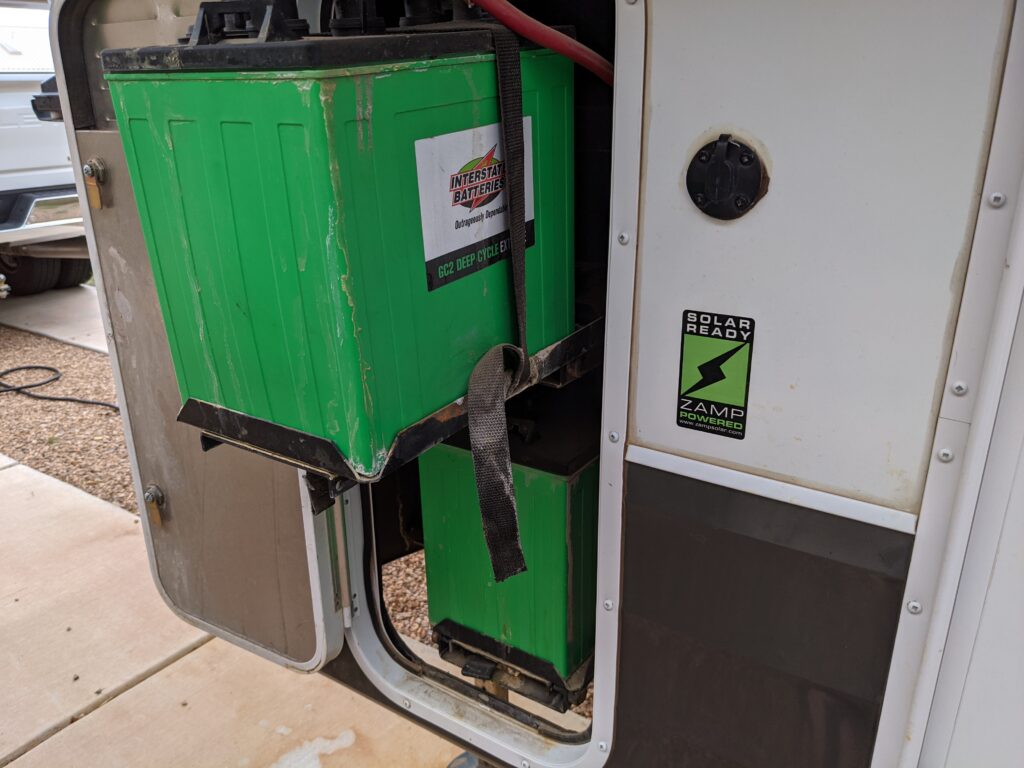UPDATE: I have decided NOT to purchase the Champion. Instead I figured out how to convert my old Honda EU2000i to propane.
The Problem
I have an old Honda 2000 generator that most in the RV camper community know is the the gold standard for portable generators. These Honda’s are known for just working….year over year…in adverse conditions and for 1000’s of hours. We bought this old workhorse from the couple that sold us our first camper. Yep I’ve had it since 2007 and who really knows how old it is. But it always starts after a few pulls. I store and maintain it correctly so it could last a lot longer. Honda’s are beasts!
This got me thinking, I had a trip this year during the summer where I ended up mis-judging the sun path and the camper was in the shade for the vast majority of the day. That meant my solar was pretty ineffective. I didn’t even bring the generator or I would of used it, but I have been leaving it at home lately. My main gripe about it is the complexity of using gasoline.
Gas has a tendency to go bad pretty quickly. Most folks say gas will last a maximum of a couple of years if it is treated with a product like Stabil. Much less if not treated and even less than that if it has Ethanol in it. On that note, I challenge you to look at the local gas pump, it almost certainly has Ethanol in it. And, when it goes bad, it tends to gum up carbonators and make your gas powered devices not so useful. On top of all of that, carrying gasoline is a pain…jugs, spills, smell…just not fun.
Back to the problem last summer when I was in the shade – I would have loved to just fire up the generator. But due to the above issues and the fact I have the solar, I have pretty much stopped carrying the generator when camping. As usual, a problem got me thinking….
The Backstory
Some people say I have a bit of Doomsday Prepper in me. I’m not sure I can argue with that. Back in 2013 we bought a new to us sticks and bricks house. I was really nervous about the systems in this new house that I didn’t know and understand, namely having my own well for our water and out own septic for waste processing.
The fact that I wouldn’t have gravity fed city water supply if the power went out for an extended period of time made me nervous, so I wanted to find a way to run the well in case that happened. I knew the only realistic way for me to get water out of the ground was to have a generator to run the pump. For reference my well is around 650′ deep, and that pump pulls a LOT of power to get running. Anyway, with the above known issues of storing a generator with gas in it in mind, I opted for a 7500 Watt duel-fuel generator to run the well pump in a pinch.
Now having lived here for closing on 7 years I have never needed to use this system under duress, but I still exercise and test it every few months.
The key here is gasoline has NEVER entered this generator., I only use propane This means the junk and varnish that gum up carbonators has never been introduced and should never foul up the works.
The Challenge
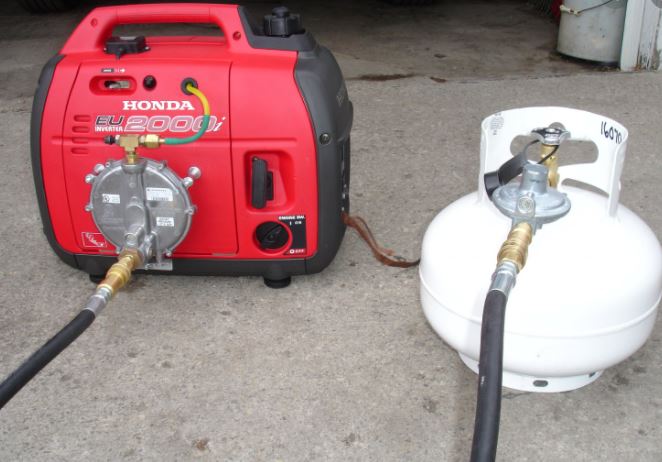
I started digging into options to convert the old Honda 2000 to propane. They do exist, but my problem with most of the solutions was a large regulator that had to be mounted precariously on the outside of the generator. Then I found Genconnex. Perfect in that all the guts of the mod live in the case of the generator itself. I reached out to the company to confirm the right kit for my model and learned a sad fact….it is not compatible with with my old Honda.
While working through this, the team over at Genconnex floated the idea of just selling my old gen and getting a new(er) one. That peaked my interest, but when I looked that the money I’d get from the old gen, then the spend on a new gen AND adding the propane conversion I started to think differently.
The Solution
I paid $500 for my generator back in the day, but looking at the high demand market for these Honda generators I bet I could get $600 for it today. Not bad, usually it goes the other way on things like this! But even if I only get what I paid a new little dual-fuel is the right solution for me.
- Non-negotiable criteria
- Quiet (Inverter and/or less than 60dBA)
- Propane or Dual-Fuel (really don’t want to use gasoline)
- 2000W or higher. 2000W can run the Microwave and/or coffee pot
I always run myself through these mental gymnastics when I start researching something like this. It’s a balancing act of price/portability/power and reputation.
Price: Kind of self explanatory
Portability: I have limited storage space and lugging around a 100lbs generator isn’t fun
Power: AC being the kicker that the smaller generators just can’t handle
Reputation: Honda is king. Yamaha runs a close second and Champion is the gaining competitor. IMHO the others are all playing catchup.
The Contenders
This one has it all – and is big and heavy coming at at almost 100lbs. Champion is a proven brand and is the brand I use at the house for the well. It could easily run the AC on the camper, runs at 59dBA @ 25% load. Also up there in price, but still less than a 2200W Honda. It’s also $89 less at Costco right now.
The no running the AC and quieter model. Weighs less than 40lbs and runs at 53dBA. Mid range in price at $650 – the equivalent Honda is a hair over $1000 and doesn’t have dual-fuel. These seem to be hard to find, although the Camping World website says “limited availability” at the local store…whatever that means. Champion makes a 2000W version of this that seems to be readily available for about the same price….but why would I do that?
And Home Depot has this little guy. Slightly more power and likely louder than the Champion yet $130 cheaper. “Less than 60dBA at no load”, Coming at at 45lbs it’s also a bit heavier. The big question here is reliability, basically a no-name generator. But the price is attractive for sure. There are several similar “no-name” units on the market.
Fin
I’m going to see if I can find the Champion 2500-Watt. It’s worth a bit of money to get the known name brand and it just seems it will fit our needs the best. The only reason I can see to go to the bigger unit would be to run the AC. I try to not be in places where I NEED AC. This little guys job is primarily for charging up the batteries. Yes, 2500W is a bit overkill for just that, but if down the road I upgrade to Lithium batteries that extra power may come in handy.
Happy Camping!
-Kyle

